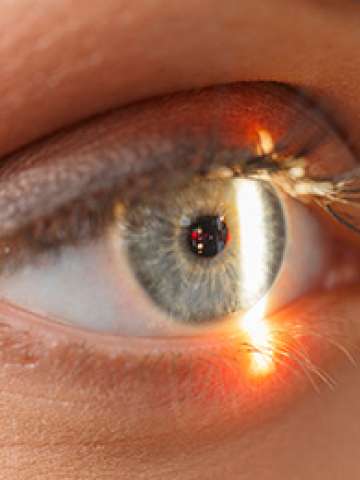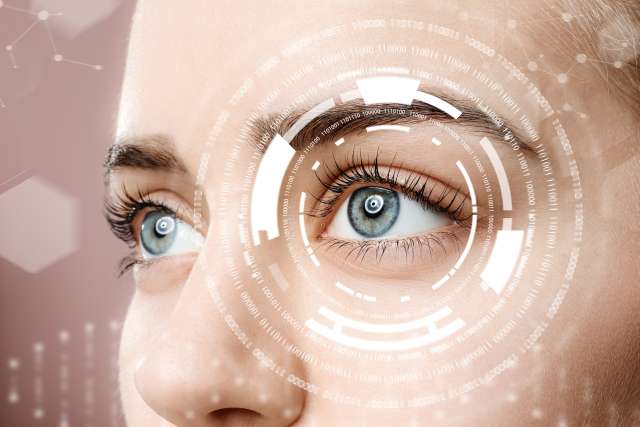Retinal Disorders & Ophthalmic Genetics
Our ophthalmologists offer world-class, expert care for all types of inherited and rare eye diseases.

UCLA Health excellence in retinal disorders and ophthalmic genetics
Our retinal disorders and ophthalmic genetics specialists expertly diagnose and care for patients with inherited eye disease. We research new treatments, always using the latest diagnostic tools and therapies. Our team is part of the UCLA Health Stein Eye Institute and Doheny Eye Centers, which is ranked among the best in the nation for ophthalmic care by U.S. News & World Report.
Highlights of our program include:
Physician expertise: Our physicians specialize in eye disorders with genetic factors — a rare subspecialty not widely available in the region. We have contributed to significant discoveries in the field of inherited retinal diseases, including finding some of the genes that cause these disorders.
Recognized excellence: Our team has achieved recognition for our exceptional coordinated care. For example, we are a Clinical Care Center for von Hippel-Lindau (VHL) disease, as designated by the VHL Alliance.
Extensive diagnostic testing: We have access to the tests needed to diagnose genetic eye conditions, including new tools available through research studies. Our specialists have the advanced expertise required to interpret this diagnostic testing, leading to more accurate, detailed diagnoses.
Access to new treatments: We lead and participate in clinical trials to find better treatments for genetic eye diseases. These clinical trials offer eligible patients access to new and promising treatment options not available elsewhere in the region.
Our areas of care
Our vision genetics specialists work with multiple teams to diagnose and treat genetic disorders that affect the eyes. Areas of care include:
Vision Genetics Center
Through the Vision Genetics Center, patients have access to extensive diagnostic testing, including genetic testing and genetic counseling. Our specialists address the full spectrum of hereditary eye disorders, offering eligible patients access to clinical trials. We collaborate with multiple research groups around the world to ensure patients can participate in the most advanced research available.
Vision Rehabilitation Center
Our vision genetics specialists work closely with the Vision Rehabilitation Center. The Center offers services to help patients with low vision live a higher quality of life. For example, vision rehabilitation specialists may provide visual assistive devices and teach patients how to use them.
These specialists help patients learn how to perform daily activities to maintain their independence. They also refer patients with severe vision loss to additional services, such as occupational therapy.
Genetic eye diseases we treat
Our specialists treat the full range of genetic conditions and rare eye diseases. Some of the genetic eye conditions we treat include:
Achromatopsia (incomplete and complete): A genetic condition that affects the perception of colors and reduce the ability to see fine details (central vision acuity)
Albinism (ocular and oculocutaneous): A genetic disorder that leads to unusually light hair, skin and eyes and affects retinal and visual development
Cohen syndrome: A rare genetic disorder affecting multiple parts of the body, often causing nearsightedness and tissue breakdown at the back of the eye (retinal dystrophy)
Choroideremia: A rare disorder causing progressive vision loss, usually starting with night blindness
Congenital stationary night blindness: A group of retinal disorders that causes difficulty seeing in low light but do not lead to breakdown of the retina
Cone-rod dystrophies: A group of disorders that leads to breakdown in the rods and cones, the light-sensitive cells of the retina
Macular dystrophies: A group of disorders that causes breakdown in the macula, the central part of the retina containing a large concentration of light-sensitive cells
Marfan syndrome: A genetic disorder that affects connective tissues, often causing multiple eye problems such as low vision, glaucoma, crossed eyes (strabismus) or retinal detachment
Phakomatoses (neurocutaneous syndromes): Neurological conditions, such as neurofibromatosis, tuberous sclerosis, Sturge-Weber syndrome and ataxia telangiectasia that can affect the eye, optic nerve and other parts of the body
Retinitis pigmentosa (rod-cone dystrophy): A group of genetic disorders that cause retina damage and slow, progressive vision loss
Stargardt disease: A more specific form of macular dystrophy that causes vision loss due to buildup of material under the retina that primarily affects the macula and central vision
Usher syndrome (types I, II and III): A genetic condition that causes progressive hearing and vision loss
von Hippel-Lindau disease (VHL): A type of phakomatoses that causes tumors and cysts to form throughout the body, including in the retina (retinal hemangioblastoma)
Treatments we offer for inherited eye diseases
Many genetic eye diseases have no cure. But treatment may reduce symptoms, increase vision and improve your quality of life. Our ophthalmic genetics specialists can recommend treatments that address your symptoms and refer you to other UCLA Health providers for services. Treatment may include:
Low vision aids: Eyeglasses, contact lenses, magnifiers, computer technology and assistive robotic devices are common tools to help people with low vision.
Vision rehabilitation: Specialists at our Vision Rehabilitation Center help patients maximize visual function and quality of life.
Many patients also benefit from:
Clinical trials
Our specialists continually research promising new treatments and medications, such as gene therapies, for genetic eye diseases. Eligible patients may receive treatment through a clinical trial.
Evaluation and management of complications
Some people may experience complications related to a genetic eye disease, such as fluid buildup between cells in the retina (macular edema) or early-onset cataracts. Others may develop red lesions (vascular lesions) or small deposits of protein and calcium on the nerve that help you see (optic nerve drusen).
Our specialists evaluate and identify complications arising from a genetic eye disease. We treat these complications using advanced techniques and tools.
Genetic testing and counseling
Genetic testing can identify mutations in genes, chromosomes or proteins that increase the risk of or cause genetic eye conditions. It can help with family planning and assessing at-risk family members. It may also help identify patients who may qualify for clinical trials.
The results can help our experts confirm a diagnosis, recommend treatments to help you manage the disorder or refer you to a clinical trial. Genetic counselors review the tests and provide information about what it means for patients and their families to have an inherited eye disease.
When appropriate, patients may work with UCLA Health’s medical genetics program long-term to manage side effects or complications of a hereditary condition.
Our expert team
Our retinal disorders and ophthalmic genetics specialists are experts in identifying all types of rare and inherited eye diseases. We participate in research studies and clinical trials to offer patients the newest, most promising treatment options.
Retinal and Ophthalmic Genetics
Contact us
Call 310-794-5400 to request an appointment with a vision genetics specialist at UCLA Health.
Find your care
Our ophthalmic genetics specialists provide world-class care for patients with inherited eye disorders. Call 310-794-5400 to learn more about our services.






